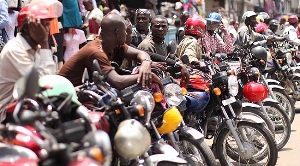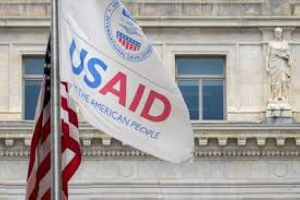Bawku (U/E), Dec. 8, GNA - Workers of the Bawku Health Services Union (BHSWU), has called on the Minister of Health, Major Courage Quashigah, the Christian Health Association of Ghana (CHAG) and the Ghana Heath Services (GHS), to address "the unfair treatment in the allocation of health resources to the Bawku Hospital" to ensure sustainability of the National Health Insurance Scheme (NHIS) in the area.
The union stated that if nothing was done to correct the current trend of discriminatory practice, it would seriously undermine the NHIS policy to make quality health care delivery accessible to the poor. This was contained in a resolution adopted by the union and read by its chairman, Mr. Emmanuel Awini, at a press conference at Bawku. He said the hospital had seen left with no other option than to charge higher fees since it depends largely on its internally generated fund to undertake expansion and maintenance works and added that if things went this may it would have serious repercussion on the sustainability of NHIS.
He said in spite of the fact that the Bawku area was the most populated part and had the largest hospital in the region it had been marginalized in the allocation of resources to expand its facilities to cope with the increasing demands for its services. Mr. Awini said whilst Bawku Hospital received 39.4 million cedis as Donor Pooled Fund (DPF) for the first quarter of 2005, the GHS institutions collected over 494.2 million cedis, creating the impression that the mission hospitals were not providing services to the sick and poor.
"It should be bored in mind that the mission hospitals are not serving only Christians but all Ghanaians who pay taxes and deserve a fair share of quality health care", he added. Mr. Awini said since the inception of the regional best health workers awards scheme, Bawku Hospital staff have not be included in spite of the hospital topping the clients' satisfaction survey, adding that this had had negative consequences on health delivery services to the people.
"A glaring case of marginalization of staff was the allocation of cars under the MOH hire purchase scheme, where not a single person had been considered and this defeats the aim of motivation for staff to remain in the country," he added.
Mr. Awini, however, acknowledged the prompt payment of staff salaries and additional hours allowances, periodic allocation of vehicles to the hospital and the expansion of the Nurses' Training school.
The union therefore was appealing to the above authorities to rectify the unfair distribution of resources to avert any disruption of services since most people would suffer unduly if the avoidable incident occurred. 08 Dec. 05
Health News of Thursday, 8 December 2005
Source: GNA












